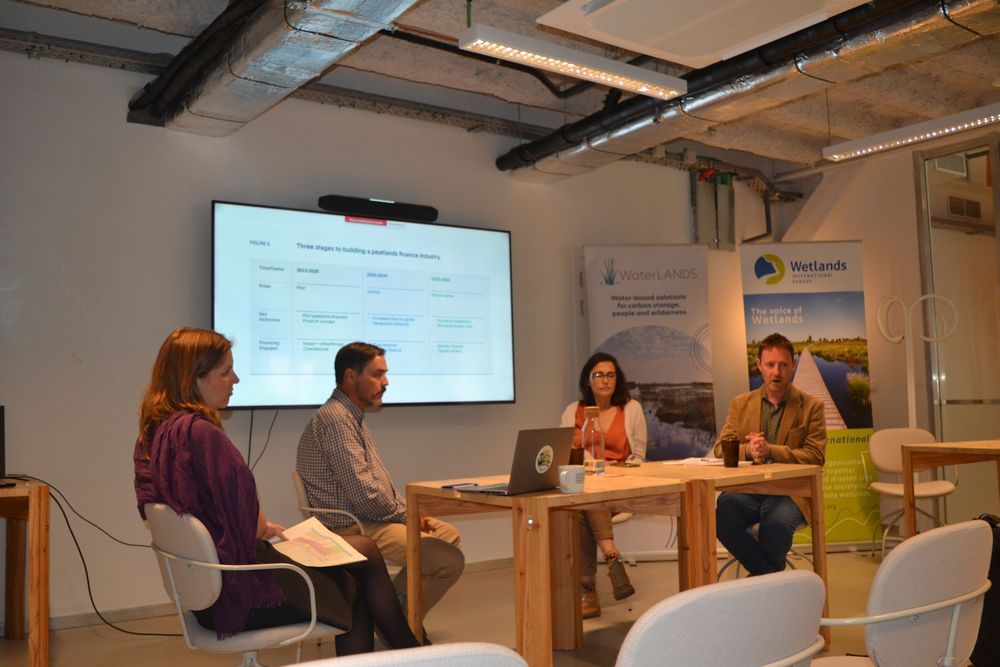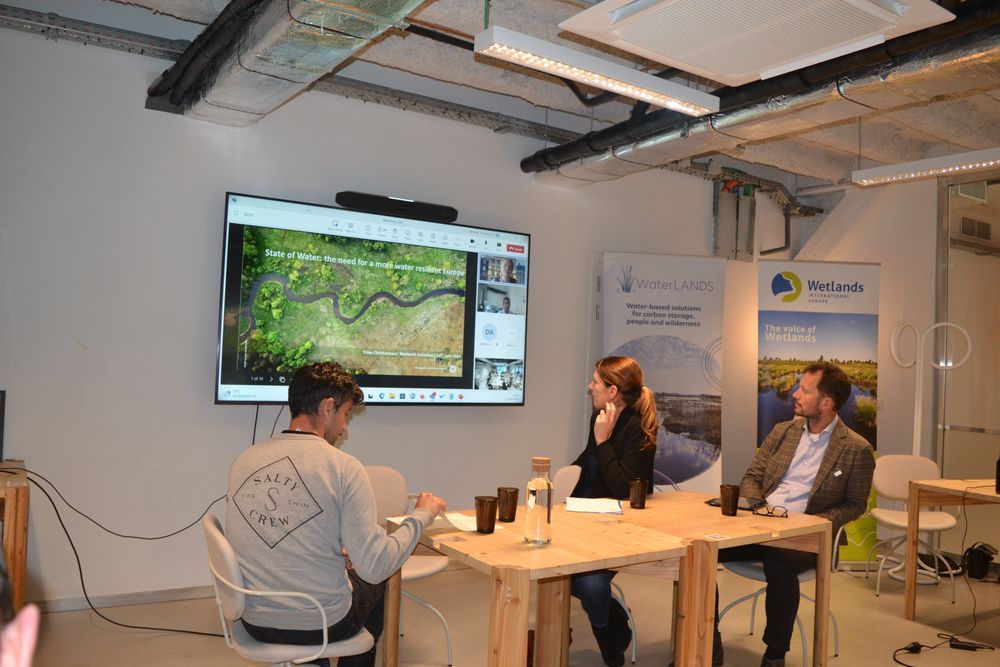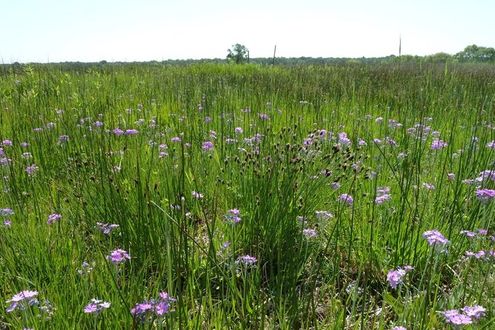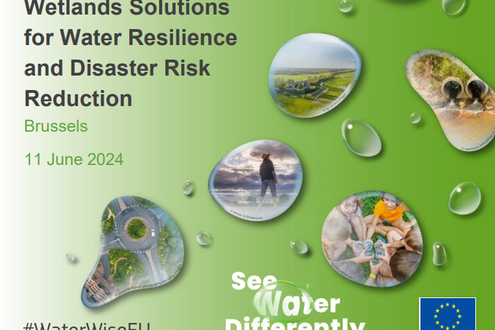On the afternoon of the 11th of June 2024, Wetlands International Europe in collaboration with WaterLANDS, hosted an event on “Wetland Solutions for Water Resilience and Disaster Risk Reduction” in Brussels. This event was part of the EU Green Week.
Discussions were made up of two parts and provided a space to share knowledge and experiences on the place for wetlands in EU policy, as well as the existing opportunities and solutions to increase water storage and wetland conservation.
The first session focused on the EU context around the role of wetlands in water resilience and disaster risk reduction. To share their perspectives, we welcomed Arnaud Terrisse from Plan Bleu who shed light on the state of Mediterranean wetlands and current mapping methods to understand and protect these areas; Trine Christiansen from the European Environment Agency who spoke to the importance of water quantity monitoring, and the urgency to address lack of implementation of legislation, including the Water Framework Directive; Chistine Falter from DG AGRI provided a more comprehensive understanding of the challenges to increase water resilience in agriculture, but also possibilities that the CAP provides to address these challenges; and finally, Chris Baker of Wetlands International Europe who stressed the key role that wetlands play in our landscapes, advocating for the effective integration of wetlands into Nature-Based Solutions.

The second session brought us to learn from stories about some solutions currently being implemented across the EU. Luis Santamaría first reflected on the work on Nature-Based Solutions undertaken in the Doñana, explaining the importance to address root causes of wetland degradation, and to ensure adaptability and long-term monitoring on such projects; Rolf Hogan from the Landscape Finance Lab delved into the necessary financial mechanisms to bring private investment into peatland protection; Lastly, Catherine Numa from the IUCN and the IMPETUS Project demonstrated mapping tools developed to better understand wetland ecologies, but insisted that solutions must not focus exclusively on natural areas and that a holistic approach is needed to ensure water resilience.
Both sessions were followed by a short discussion and Q&A with the audience, before moving on to a small reception afterwards.

The main takeaways from the discussions were:
- The urgency to improve implementation of existing laws –including the water framework directive, CAP good agricultural and environmental condition of land (GAECs)
- A necessary paradigm shift in policy approaches, from water quality to water quantity as water uses and climate change are increasingly impacting the resource
- From the start of a restoration project, the active contribution of local stakeholders –notably thanks to co-creation practices, is an essential element for the sustainability of such projects, including to provide equity among impacted locals.
- Among the enablers, supportive governance and blended finance were identified as key requirements for sustainable wetlands restoration
- Nature-based solutions are not a one-fits-all silver bullet, they consist of actions embedded in a heterogeneous and changing landscape and complex ecosystem interactions. Adaptive management is required to adapt to wetlands ecological needs, support informed decision-making, and particularly to consider the needs of local stakeholders as trade-offs between various interests will inevitably have to be operated.


